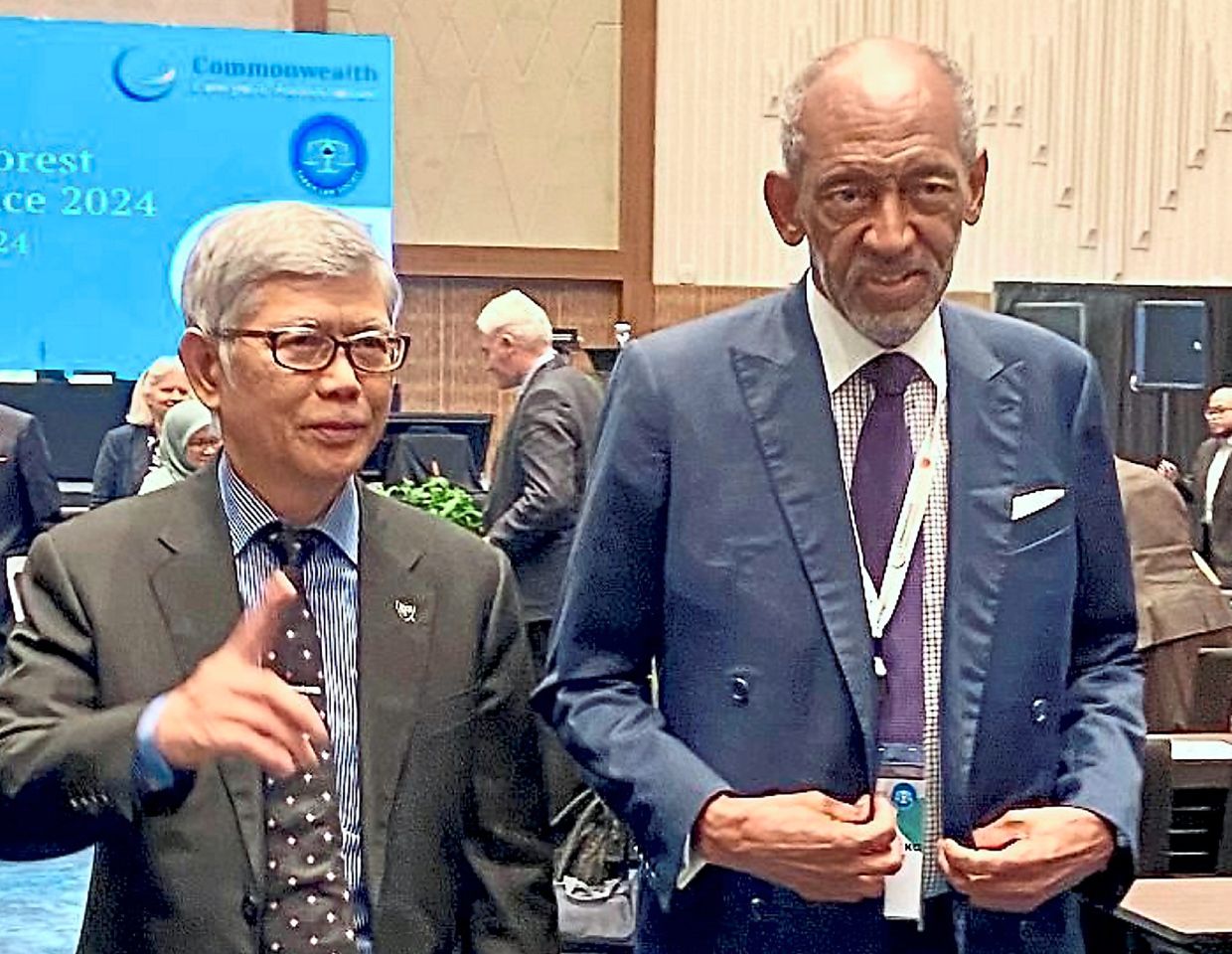
KOTA KINABALU: Gaps in laws must be addressed for environmental conservation, says the Chief Judge of Sabah and Sarawak Tan Sri Abdul Rahman Sebli.
“We must address the gaps in legislation that allow for unsustainable practices, and advocate for policies that ensure environmental conservation,” he said when opening the three-day Borneo Rainforest Law Conference 2024 here yesterday.
Justice Abdul Rahman suggested more stringent laws, citing Sabah as an example.
ALSO READ: DG: Open burning a strain on resources (Poll Inside)
“It is vital for us to recognise the importance of preserving this beautiful landscape for generations to come.
“Even in this ecological heaven, we are witnessing the impacts of environmental challenges that require our focused legal attention,” he said.
For example, a Tourism, Arts and Culture Ministry report on the Crocker Range (part of Mount Kinabalu’s mountain range) identified various threats to the area’s biodiversity from land alienation, commercial logging, illegal logging, and fires, said Abdul Rahman.
Similarly, he noted the need for stringent legal measures for the state’s fauna that include endangered species such as the orangutan and pygmy elephant, among others.
“Legal frameworks must be enhanced to deter the illegal wildlife trade and ensure the preservation of Sabah’s charismatic fauna for future generations,” he said, adding that Sabah’s vibrant marine biodiversity faces threats from overfishing, habitat destruction, and climate change.
“Legal practitioners and marine experts are encouraged to advocate for robust legislation to safeguard marine ecosystems, promoting sustainable fishing practices and marine conservation efforts,” he added.
He also said Malaysia was committed to addressing environmental issues and has ratified various international environmental conventions on carbon emissions and climate change over the years.
Abdul Rahman said the Environment (Reduction of Greenhouse Emission) Bill 2023 by the Sarawak assembly in 2023 was in line with Malaysia’s commitment to reducing greenhouse gas emissions by 45% by 2030.
“I am pleased to learn that Sarawak was the first state to take the initiative to pass such a law, aiming to promote carbon capture and storage and mitigate the effects of climate change, while providing opportunities for Sarawakians to participate in global warming mitigation projects and to earn carbon credits for their efforts.
“Climate change presents a global crisis that demands a unified response, and Malaysia is not exempt from its effects. It is imperative for our legal framework to adapt and evolve to confront the challenges posed by climate change,” he said.
He added that within Commonwealth countries, historical and environmental injustices have disproportionately affected vulnerable communities.
“The constitutional commitment to equal protection under the law, prevalent in many Commonwealth constitutions, compels us to address environmental injustices that disproportionately affect marginalised communities.
“It is a shared acknowledgment that justice must prevail irrespective of one’s geographic location within the Commonwealth,” he said, adding that Commonwealth nations must unite in their commitment to protecting the environment.
“The ancient principles of the Public Trust Doctrine (PTD), deeply ingrained in the constitutional fabric of many Commonwealth countries, underscore the obligation to safeguard natural resources for the benefit of all citizens.
“The PTD has been recognised by English courts since at least 1299, establishing that the state has a fiduciary duty to safeguard vital natural resources and hold them in trust for the benefit of both current and future generations,” he said.
To this, Justice Abdul Rahman said all groups – the legal community, government bodies, and non-governmental organisations – must work together to streamline and strengthen existing environmental laws.
“Our legal system must serve as a bulwark against environmental degradation, providing a solid foundation for sustainable development,” he added.
The three-day Commonwealth law conference sees various legal experts sharing challenges faced in their countries in tackling environmental issues, including climate change.
